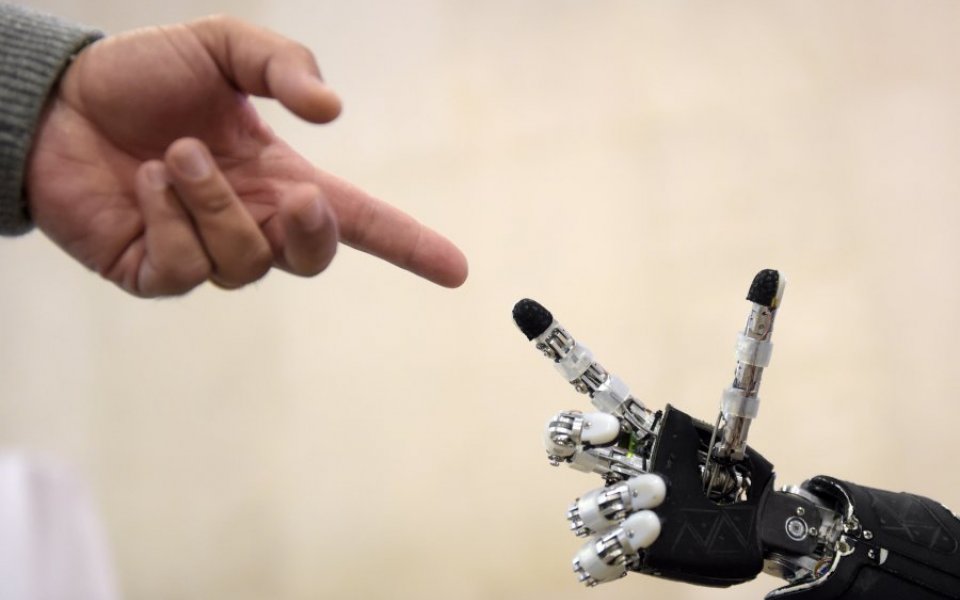From 3D selfies to more cybersecurity woes – are these the 10 consumer trends that will define 2016?

Crystal ball-gazing is an imperfect art, but technology manufacturer Ericsson has nevertheless had a go at predicting which consumer trends will be hot in 2016.
And from 3D selfies to printing food, it all sounds a bit… futuristic. But company's ConsumerLab said consumer interest in them is "quite strong".
So without further ado, here are 10 ways our lives will change next year…
1. The end of the early adopter
You know that guy at the office who was wearing an Apple Watch three days before it went on sale? His star has fallen. Ericsson suggests our increasingly interconnected lives mean we'll all be early adopters next year.
"In the US it took over a quarter of a century for TV to be used by a quarter of the population. For PCs it was 16 years, for mobile phones it was 13 years, and it was only seven years for the web."
In other words: "The world is becoming all-inclusive".
2. More screen time
There is now a generation of "streaming natives", for whom having a massive library of TV shows, music and movies on-demand is completely natural. According to the report, 20 per cent of 16-19 year-olds watch more than three hours of YouTube a day. So brace yourself for more rows over screen time…
3. … or the end of the screen altogether?
That said, screen time itself may become a thing of the past, as artificial intelligence finally makes it possible to interact with machines without having to use machines.
According to the research, half of smartphone users think they'll be a thing of the past in the next five years, while 85 per cent suggest wearable electronic "assistants" will be commonplace. So prepare for the beginning of the end of the screen.
4. Virtual reality
When Facebook bought virtual reality firm Oculus for $2bn in 2014, it was seen as a game changer. Since then, both Google and Microsoft have either launched or announced plans to launch their own virtual reality offerings.
Ericsson's report suggests there's an appetite for it: half of smartphone users want a "3D selfie" that can be used to try on clothes online.
5. Even smarter homes
If 2015 was the year the Internet of Things became A Thing, 2016 will be the year the very fabric of our homes begins to get smarter, the report suggests.
More than half of those quizzed thought homes will have "embedded sensors" searching for problems such as damp, mould and water leaks within five years, while 66 per cent expect sensors that will regulate air quality and ventilation.
6. Wifi on your commute
Could 2016 be the year the UK's bus and train companies finally listen to their customers and provide wifi across the board? The report suggests it might. More than half of commuters said they weren't impressed by their ability to browse the internet and access social media.
7. Emergency services – on Whatsapp?
Calling 999 is so 2015, darling: in 2016, you'll be Whatsapping for an ambulance. The report suggests people want to connect to emergency services via social network, which would allow them to send pictures of their location.
Meanwhile, smartphone users want an "emergency app", which would alert people to a crisis and keep them updated with verified (ie. rumour-free), realtime information.
8. Our transformation into cyborgs begins
We're all pretty comfortable with wearable technology – but what if it's inside us? Ericsson hails an new era of "internables", aiding vision, memory, hearing or intelligence.
"The next generation of body-monitoring technology may not be worn, but may instead be found within the human body," it suggests.
The majority of demand seems to be around sensory perceptions and cognitive capabilities – but more than half said they'd like to improve their communication, with one in three saying they'd like implants that add internet information to what they see and hear. Eeek.
9. More hacking
If you thought the attack on TalkTalk was bad, brace yourself for 2016. The majority of people believed more organisations will be vulnerable to cyber security breaches next year.
10. Everyone's a journalist now
Twitter's Periscope was the live-streaming trend that made everyone a journalist in 2015 – now two-thirds of smartphone users say they share more information online than ever before.
For businesses, that may be a problem: 34 per cent said if they've had a bad experience, they'll tell the world, while 29 per cent said they read about bad experiences on their feeds "on a weekly basis".
"Consumers are increasingly important as influencers ont he future of societal revolution," suggests the research. Go figure.